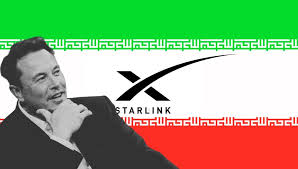
Breaking News
SEMI-NEWS/SEMI-SATIRE: July 6, 2025 Edition
Why I LOVE America: Freedom, Opportunity, Happiness
 She Went On a Vacation to Iran: 'It was Nothing Like I Expected'
She Went On a Vacation to Iran: 'It was Nothing Like I Expected'
 Wisdom Teeth Contain Unique Stem Cell That Can Form Cartilage, Neurons, and Heart Tissue
Wisdom Teeth Contain Unique Stem Cell That Can Form Cartilage, Neurons, and Heart Tissue
Top Tech News
 xAI Grok 3.5 Renamed Grok 4 and Has Specialized Coding Model
xAI Grok 3.5 Renamed Grok 4 and Has Specialized Coding Model
 AI goes full HAL: Blackmail, espionage, and murder to avoid shutdown
AI goes full HAL: Blackmail, espionage, and murder to avoid shutdown
 BREAKING UPDATE Neuralink and Optimus
BREAKING UPDATE Neuralink and Optimus
 1900 Scientists Say 'Climate Change Not Caused By CO2' – The Real Environment Movement...
1900 Scientists Say 'Climate Change Not Caused By CO2' – The Real Environment Movement...
 New molecule could create stamp-sized drives with 100x more storage
New molecule could create stamp-sized drives with 100x more storage
 DARPA fast tracks flight tests for new military drones
DARPA fast tracks flight tests for new military drones
 ChatGPT May Be Eroding Critical Thinking Skills, According to a New MIT Study
ChatGPT May Be Eroding Critical Thinking Skills, According to a New MIT Study
 How China Won the Thorium Nuclear Energy Race
How China Won the Thorium Nuclear Energy Race
 Sunlight-Powered Catalyst Supercharges Green Hydrogen Production by 800%
Sunlight-Powered Catalyst Supercharges Green Hydrogen Production by 800%
Iran threatens to flog Elon Musk's Starlink users

Users of the SpaceX-operated satellite service now face penalties of fines, flogging, or up to two years in prison if they are caught, according to state media.
The law, which also toughens espionage rules, targets foreign-backed dissent. Though pending final approval, it reflects Tehran's growing alarm over Starlink's role as a digital lifeline during internet blackouts and a potent symbol in its information war with the West.
Newsweek has reached out to Elon Musk via X for comment.
Why It Matters
The Starlink ban underscores how private tech firms such as Starlink have become entangled in global conflict. Coming after U.S. and Israeli strikes, the move highlights how satellite internet is now a tool of modern warfare—and a threat in the eyes of governments like Iran's.
What to Know
Iran's new legislation expands state powers over digital and foreign-linked activities. In addition to criminalizing Starlink, the law introduces sweeping penalties for espionage and cooperation with foreign adversaries. It defines "operational cooperation" with countries like the U.S. and Israel as "corruption on earth"—a capital offense under Iranian law. This includes actions such as cyberattacks, use of drones or sabotage tools, and accepting funds from foreign intelligence, even without taking action.
Starlink in Iran
On June 14—just one day after Israeli airstrikes first targeted Iran—Elon Musk posted a four-word message on X: "The beams are on." The post confirmed the activation of Starlink's satellite internet service over Iran amid a sweeping government-imposed internet blackout. Tehran's shutdown came as part of its crackdown following escalating regional conflict, severing much of the country's digital communication with the outside world. Musk's move instantly provided a high-speed, uncensorable connection, offering Iranians a potential lifeline to bypass state censorship and maintain contact during a period of intense unrest.

 He 3D Printed a Whole House
He 3D Printed a Whole House

